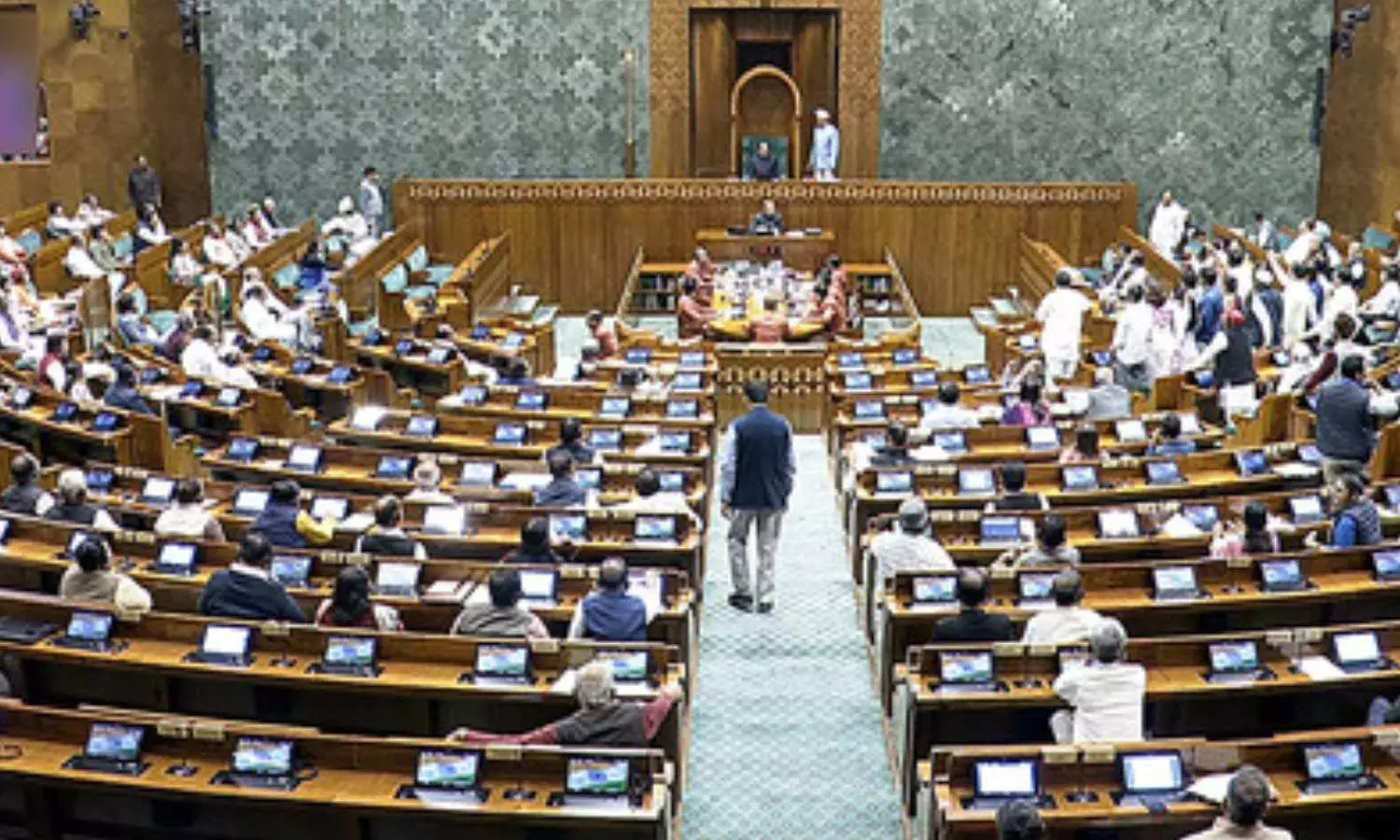Waqf Amendment Bill Introduced, Sparks Intense Parliament Debate
The Waqf Amendment Bill 2025, introduced in Lok Sabha, aims to improve property management. The opposition calls it unconstitutional. Debate continues.
image for illustrative purpose

Union Minority Affairs Minister Kiren Rijiju tabled the Waqf (Amendment) Bill, 2025, in the Lok Sabha on Wednesday. The bill, shaped by the recommendations of a Joint Parliamentary Committee (JPC), aims to enhance the administration of Waqf properties by integrating technology-driven management systems and promoting transparency.
Introducing the bill, Rijiju highlighted that the consultation process for this legislation was the most extensive ever undertaken by a parliamentary committee. The JPC reviewed over 97.27 lakh petitions and memorandums, both in physical and online formats. Additionally, 284 delegations, including Waqf boards from 25 states and Union Territories, as well as legal experts, religious leaders, academicians, and charitable organizations, provided their inputs.
The introduction of the bill has ignited a heated political debate. Opposition parties, including Congress and Samajwadi Party, strongly criticized the amendments, alleging that they infringe upon constitutional rights. Congress MP Gaurav Gogoi labeled the bill as an “attack on the Constitution,” while Samajwadi Party MP Ram Gopal Yadav termed the proposed amendments “dictatorial and unconstitutional.”
Meanwhile, Union Home Minister Amit Shah defended the bill, stating that it was introduced following due parliamentary procedures. He questioned the opposition’s objections despite their initial demand for a Joint Parliamentary Committee review.
Assam Chief Minister Himanta Biswa Sarma expressed confidence that the bill would be passed. Janasena, a key ally of the National Democratic Alliance (NDA), declared its support for the bill, with party leader Pawan Kalyan directing his MPs to vote in favor.
Union Minister Giriraj Singh described the bill as being in the best interest of the Muslim community, countering criticism by stating that those opposing the legislation were “anti-Muslim.” Uttarakhand Waqf Board Chairman Shadab Shams echoed similar sentiments, calling the bill a step toward mainstreaming economically disadvantaged Muslims.
With the Bharatiya Janata Party (BJP) holding 240 seats and its allies, including Telugu Desam Party (TDP) and Janata Dal (United) (JDU), contributing additional votes, the ruling coalition is poised to secure the necessary majority. The NDA’s estimated tally stands at 295 votes, surpassing the required 272, while the opposition, including Congress and regional parties, controls around 234 votes.
The bill proposes significant changes to the governance structure of Waqf properties. Key amendments include the inclusion of non-Muslim members in Waqf boards and mandatory representation of at least two women. Additionally, donations to Waqf institutions would be restricted to individuals practicing Islam for at least five years.
Critics argue that these changes violate constitutional provisions, including Article 15 (freedom of religion) and Article 30 (minority rights). Opposition leaders such as AIMIM chief Asaduddin Owaisi and DMK’s Kanimozhi have opposed the bill, citing concerns over religious autonomy.

